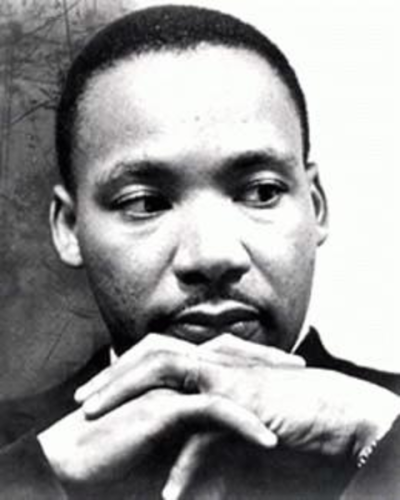by: Mark Onofrio
January 13, 2014
Five Tips for Working with Children, Tweens and Teens
As we honor Martin Luther King Jr.’s legacy through the National Day of Service, we encourage teachers, parents and families to provide community service opportunities for children and youth. Below are tips to help make the experience meaningful.
“Everybody can be great...because anybody can serve. You don't have to have a college degree to serve. You don't have to make your subject and verb agree to serve. You only need a heart full of grace. A soul generated by love.”
—Martin Luther King Jr.
1. Generate service learning ideas from children and youth.
Engage young people in a discussion and brainstorming session about their community, encouraging them to think critically about its most important assets and what areas need more support. The more buy-in youth have from the beginning, the more investment they will have in the project, and it will have a more lasting effect on them and their communities.
2. Think beyond community service to social action.
While it is important for youth to help others, the experience will have more meaning if they see the big picture. It is one thing to spend a few hours at a homeless shelter distributing lunch; take the service project to another level by helping young people understand why people are homeless and what they can do about it. Engage youth in social-action strategies, such as writing letters; social media campaigns, including online petitions and donations; engaging in advocacy to get a law or bill passed; creating PSAs (public service announcements); and delivering speeches.
3. Use the experience as an opportunity to build empathy.
Service provides a rich opportunity for youth to develop empathy for others, especially those who are in need. As they are serving, make sure young people see the complexity and humanity in the people they serve. Prepare children for the experience by answering their questions, listening to their fears and dispelling their misconceptions.
4. Be aware of bias-related language and be careful not to perpetuate stereotypes.
Make sure the experience helps youth connect with the people they are serving rather than perpetuate stereotypes. Address thinking that focuses on pity or simplistic understanding of people’s circumstances. Guide to move beyond thinking of people as the “other” (i.e., “not one of us”) to understanding and respecting their humanity.. Remind youth to use language that does not equate people with their characteristics or actions (i.e., say “people with disabilities, not “disabled people”; say “youth who bully,” rather than “bullies”).
5. Inspire children and youth to change the world.
Convey the message to youth that they can change the world. Even a small, one-time action of helping their neighbors and communities can have a deep impact on a young person.










